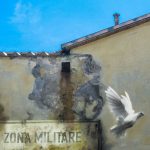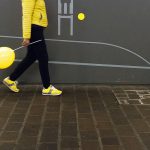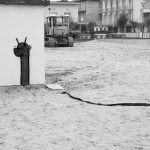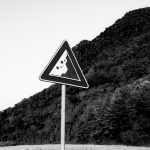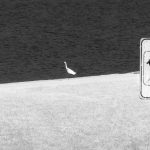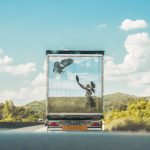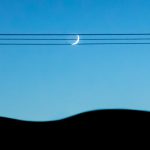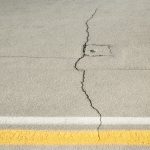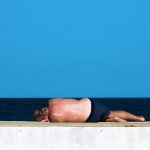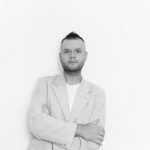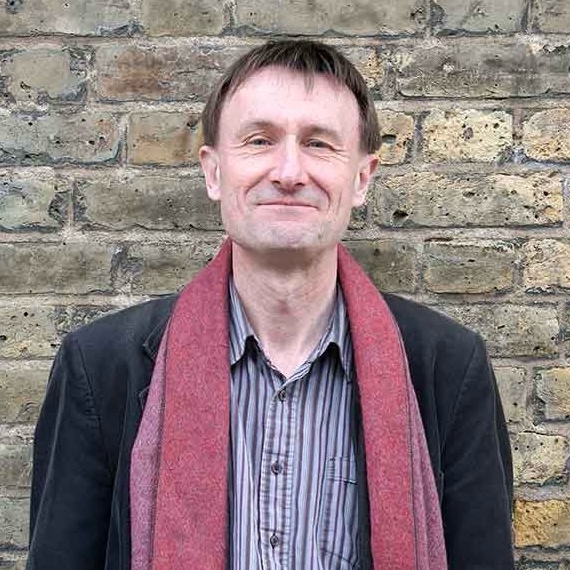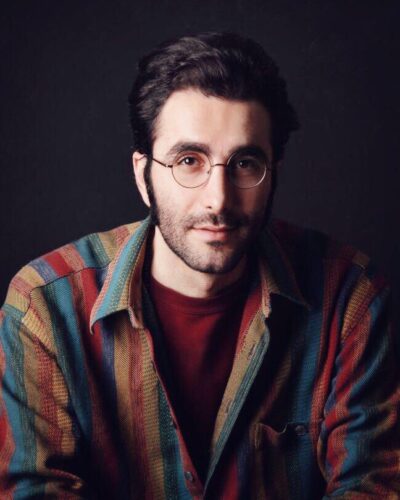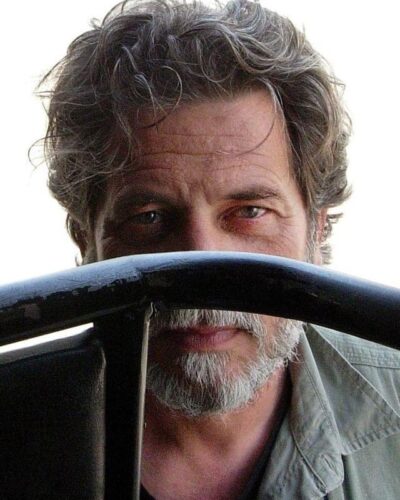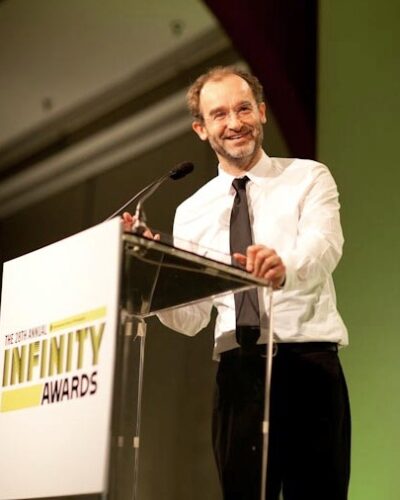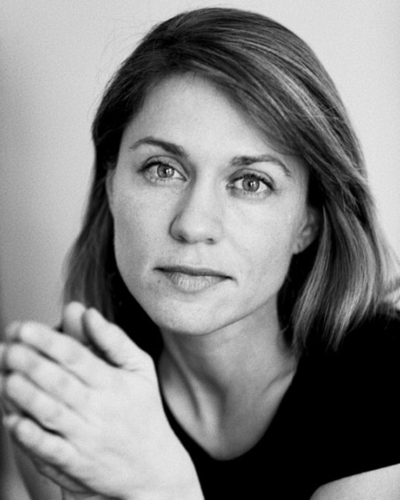Francesco Sembolini, based in Italy, was born in 1972. He is a professional photographer known for his humorous style. He is a promoter of several events dedicated to street photography and represents the Italian Street Eyes Collective.
Statement: I love to build my own reality by apposition of elements, colors, people, creating aesthetic, graphics, humorous and crazy pictures.
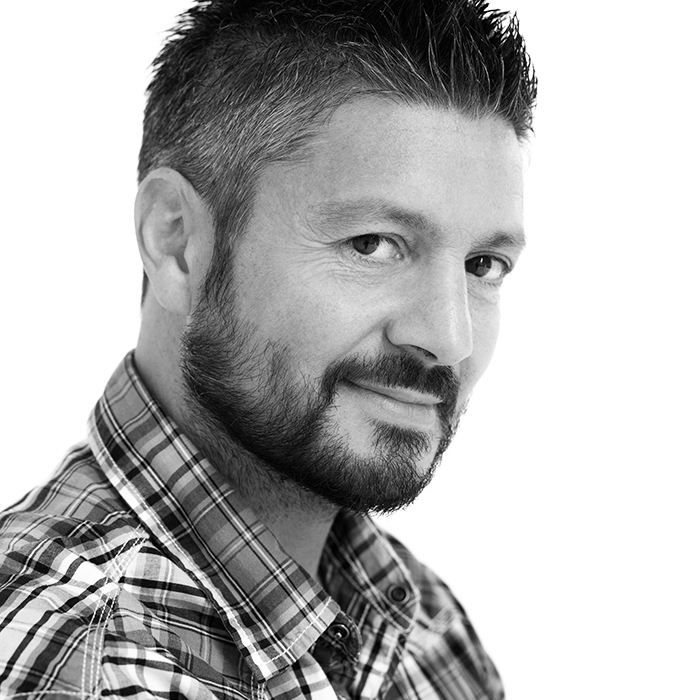
What is your first childhood memory?
I was seven or eight years old and I was sitting next to my great-grandmother while she was telling me about the birth of my father during the Second World War.
Are you still learning who you are?
At the age 45, I have understood that I will be constantly continuing to discover new things. I have experienced so many developments during my life that at the end of each experience I thought I knew myself, I knew Francesco. But I didn’t.
Who are you when no one is looking at you?
When I am alone with myself, I am more free. Relationships with others restrict the freedom, which, in many cases, is good and serves certain purposes.
What got you involved in photography in the first place?
I always liked to write and to draw. When I was a young boy I liked to write the same sentence in a dozen of different types of handwriting and as time passed by I started drawing. When I took a camera in my hands I understood immediately that my eyes were able to follow my imagination much better in comparison to what my hand was able to do on a white paper. From that time onwards this way of drawing became also my job.
Ansel Adams once said: You bring to the act of photography all the pictures you have seen, the books you have read, the music you have heard, the people you have loved. Could you tell us about your favorite photographs, books, music and people who are closest to you?
I agree with Adams, in each of my picture there are all my experiences. A photo does say a lot about a photographer. I also think that there are some “subliminal” influences we are not quite aware of – even if they play a very important role in overall.
There’s a thin line between invading people’s privacy and taking their photographs. Why do ethics matter?
This is a very controversial issue in photography and especially in street photography. Many times street photographers solve this question without thinking too much and hiding behind their goals: “I don’t mean to hurt anyone”. The fact that we are not acting in order to hurt somebody does not mean that he/she does not feel that someone’s privacy has been violated. In my opinion, both sides should use common sense or the photographer should choose a type of street photography like the one I am using right now, where in most cases the photographed people can’t be recognized.
Bruce Gilden claims that photography is a voyeuristic medium. Does it resonate with you?
If we consider the most common meaning of the term “voyeurism”, I can say that it has nothing to do with me. But if we understand it as the mental pleasure that grows when we look at a scene that we have imagined and now it unfolds in front of our eyes – then yes.
Have you ever acted rude in front of people you have tried to photograph?
Yes, maybe twice. I have been rude to people that had a very rude approach towards me. The funny thing is, these people were not even the subjects of my photograph.
Have you ever been following your subject that the person could eventually think you’re a stalker or a pervert?
No. At least, I think I do not. I followed many people but I have never felt that they were scared of me.
Gloria Steinem once said: The truth will set you free, but first it will piss you off. Are you getting nervous when someone goes deeper and scrutinizes your work?
Criticisms and judgments are always important to grow, starting from the birth, during school time, at work and life in general. But comments can also “jeopardize” our development. This is the reason why I pay a lot of attention to the experience and reliability of the person that gives me pieces of advice or criticizes me.
What if you take images for a couple of years and don’t get a positive audience reaction? Would you be still taking them?
I do not know. It did not happen yet. We live in the world of the social media and it is strange not to receive any reaction from any kind of audience, the problem arises when the audience that is important to me is not interested in my work. If this would happen it means that I should evolve again.
Do you often get jealous of someone’s achievements?
I rate highly people that obtain a deserved success. Unfortunately, sometimes I think that somebody has an undeserved success and this can irritate me for a couple of minutes (Laughter).
If you could wake up tomorrow in the body of another artist, who would you choose and why?
Nobody. I didn’t want to be in the body of someone else, you never know what kind of unforeseen “demons” you will find in the body of another person! (Laughter) The fact that I think highly of a person does not mean that I would wish to become that person.
What artist made the most impact on you and why?
Maybe hundreds. So, ultimately, maybe no one.
If you could have personally witnessed a perfect street scene at the right decisive moment, what would you want to have seen?
I visualize a lot, I like to do it. Often while I am trying to fall asleep I imagine scenes that I would like to shoot, from the most minimal to the most unlikely. But you never know what kind of relationship you will find on the street, therefore at night, it is better to think about something else (Laughter).
If you could witness and photograph any historical moment of the past, present – or future – what would it be?
I am not a reporter; the importance of witnessing an event is not my cup of tea. If I could experience one of the most important historical moments, and go back in time, maybe I would get lost while doing the research on minimalism or matching colors, and eventually, I would lose the opportunity to come back to nowadays as the most famous photographer of the history (Laughter).
What’s on your photography bucket list this year?
To keep searching for street photos in order to surpass myself? (Laughter) But jokes aside, I am working on some important events about street photography.
What do you like to do outside of photography?
Photography is my work and my main hobby, the remaining time is for my family. It has not been always like this, in the past I used to practice many sports.
Blind and live forever or be able to see and die in a couple of years?
Being blind means that I cannot take photos but it does not mean that I cannot live and make experiences, it does not rule out the possibility to realize good things. This is a question we can answer without thinking too much, but most importantly because it is not the God’s will.
What do you want your tombstone to say?
Someone else will decide it.
About Arek Rataj
“You Can Shoot. Can You Talk?” is a series of interviews created by Arek Rataj. He is a Qatar-based journalist, contemporary photographer and educator.
Arek was born in a small industrial district in communist Poland under the Soviet Union dictatorship. In midst of this human misery, political hypocrisy, environmental dirt and ugliness, he became particularly sensitive for all signs of beauty and transcendence.
Copyrights:
All the pictures in this post are copyrighted Francesco Sembolini. Their reproduction, even in part, is forbidden without the explicit approval of the rightful owners.


